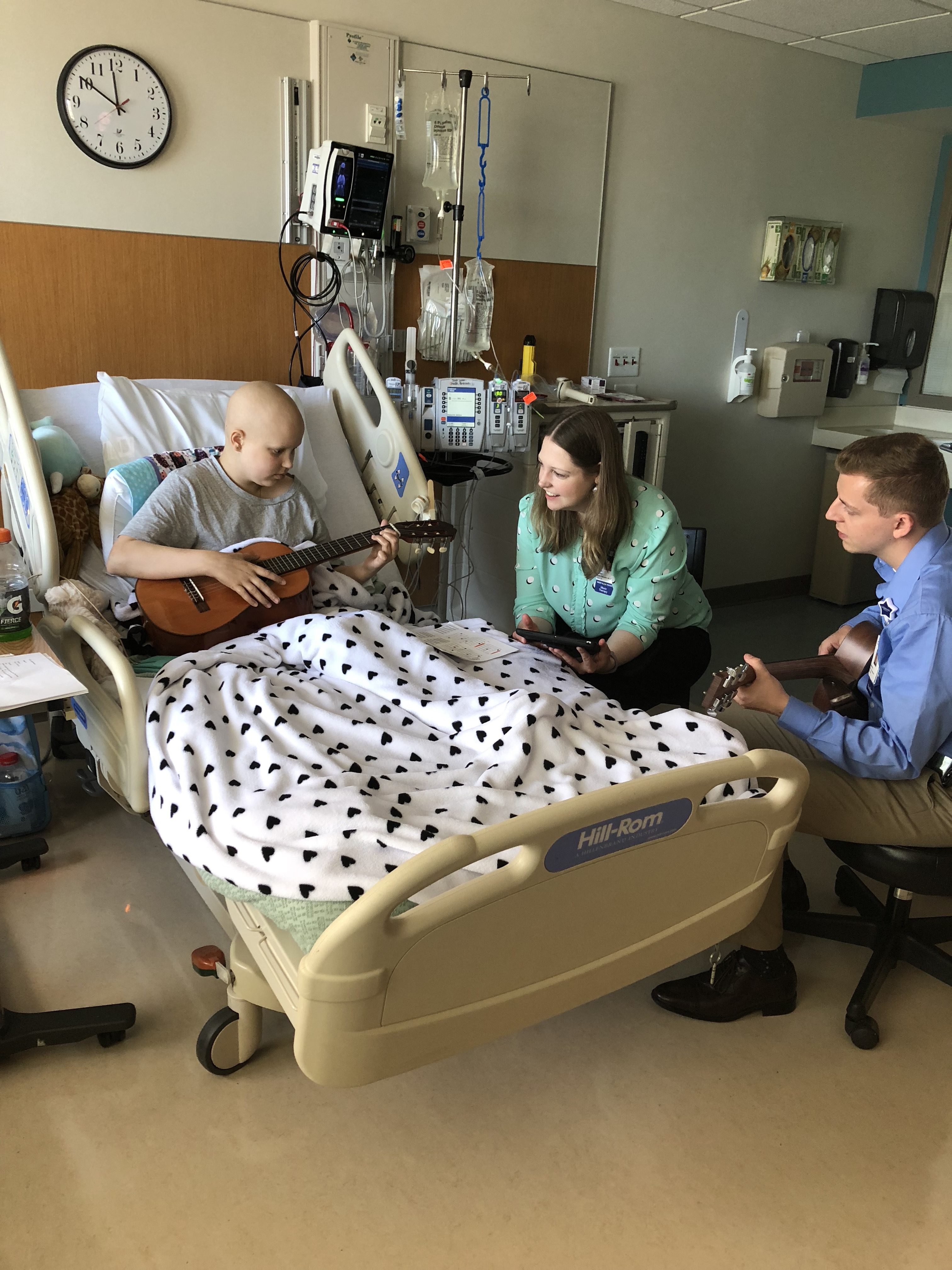It’s no secret that music can be uplifting and relaxing. A growing amount of evidence suggests that the power of music can have significant benefits to patients and their families in clinical settings. And that’s what Mia, a Children’s Minnesota cancer patient, credits to her good spirits while in the hospital.
One day in 2017, Mia woke up and couldn’t feel her legs. She tried to get out of bed and fell to the floor. Her mom, Brenda, took her to Children’s, where doctors ordered a CT scan. What they found was much more serious than growing pains: a tumor was growing on her spine. Mia was diagnosed with metastatic Ewing Sarcoma, a rare cancer that typically strikes young people.
Shortly after her scan, Mia had surgery on her spine to remove the tumor and began treatment at Children’s. Her family spent 10 months at Children’s while Mia endured 14 rounds of chemo.
While in the hospital, Mia participated in music therapy. She already had a strong love of music and the music therapists helped nurture that love even more. They sang along with her and even taught her to play the ukulele.
“All these little things make a big difference in a person’s life,” Mia said. “In the worst of times, staying positive can make you feel better.”

BE PART OF OUR STORY.
What is music therapy?
Music therapy is an evidence-based allied health profession that uses the clinical applications of music to meet individualized non-musical goals. These goals could be physical, cognitive, emotional or social. At Children’s, patients are seen for individual, group or family music therapy sessions.
Who are music therapists?
Music therapists use the clinical applications of music to facilitate movement and physical rehabilitation, engage patients and families in their treatment, and provide an outlet for creative and emotional expression.
About music therapy sessions
Music therapy sessions are tailored to each patient’s developmental needs whether they are infants, school-aged kids or teenagers. While every music therapy sessions is different, here are some examples of common experiences and techniques used for each age group.
Benefits of music therapy:
Music therapy can have many benefits such as:
- Pain management.
- Anxiety and stress reduction.
- Family support.
- Normal growth and development.
- Effect positive physiological changes.
- Learning coping skills and techniques.
- Physical rehabilitation.
- Self-expression.
- Relaxation.
- Opportunities for choice and control.
- Positive change in mood and emotional states.
Thanks to people who give generously to Children’s, we’re able to make these “little things” possible for kids in our care like Mia. Donations fund everything from music therapy to sibling play areas to child life specialists — supportive, therapeutic services that insurance doesn’t cover. Give today.